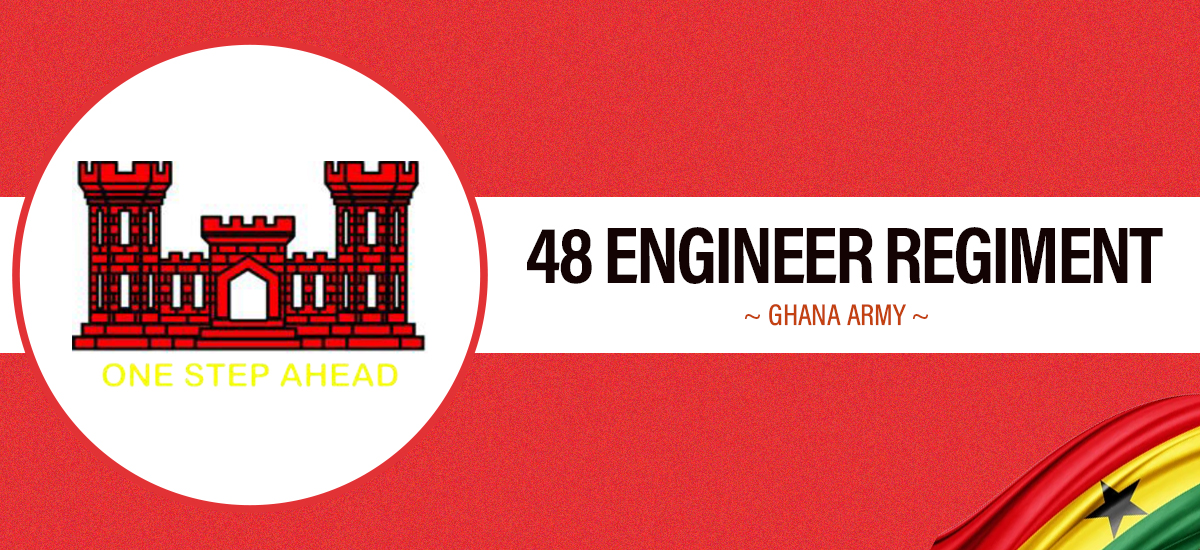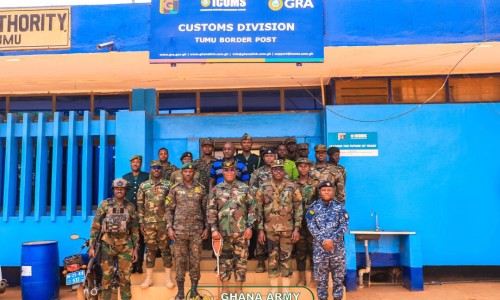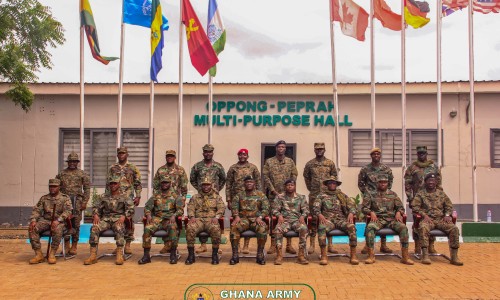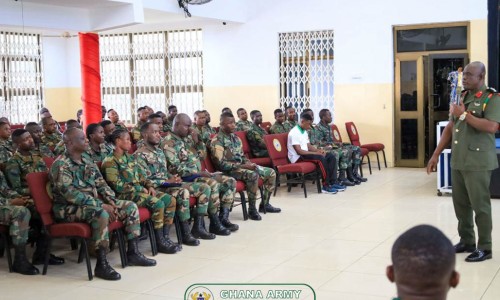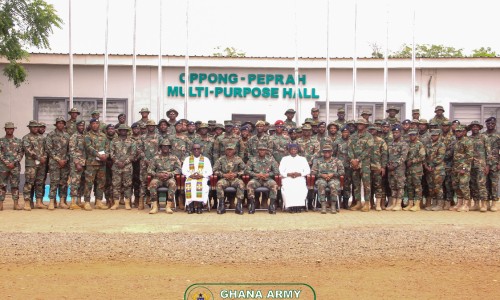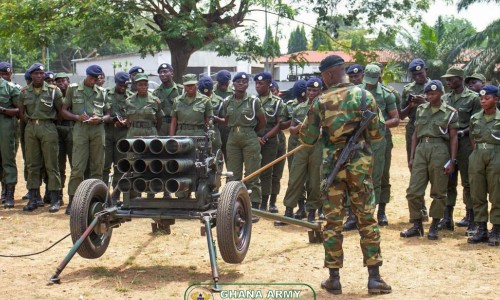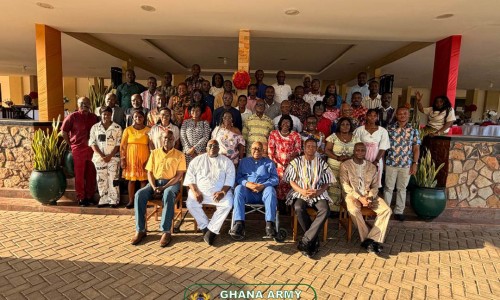BRIEF HISTORY OF THE FORCES PAY REGIMENT
The Forces Pay Regiment was established in 1953 and was then called Command Pay Office and it served only the Ghana Army (There was no Navy and Air Force). It was located within the Headquarters of the West African Command (WAC). The WAC was situated at Butler Lines, currently BOD location. As at 1955, the office was under the command of Lt Col Westcot, a British. All other officers were whites and all the British Other Ranks were Sergeants and above. The most Senior African OR was then WOII MO Koranteng who later commissioned and became the first Ghanaian Commanding Officer. There were a few Ghanaian SNCOs and NCOs. The Chief Paymaster and Financial Adviser (CP & FA), the head of the Corp at the time was Lt Col Graves.The Command Pay Office had the following sections:
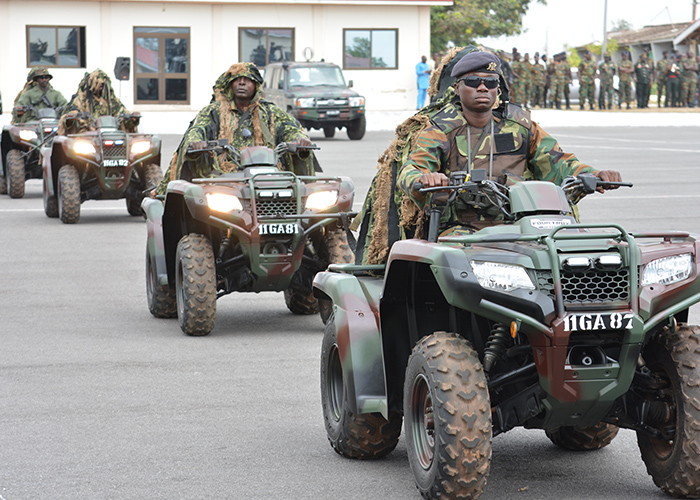
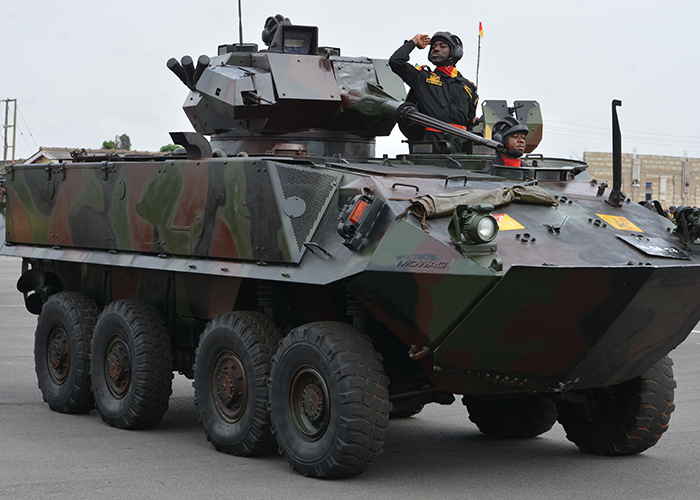
- An African Accounts Gps for Offrs and OR which maintained accounts for Africans or Ghanaians.
- British Account section maintaining accounts for the whites.
- An Imprest Section.
- Cashier’s Office.
- Bills Section.
- Debit Section.
Around 1957 just after Ghana attained independence, then Pay Office was involved in Unit Pay Administration, and to start this, Pay Clerks were posted to all units. Around the same period, there was a general move to ‘Ghanaianise’ the military. In order to prepare Ghanaians to assume higher responsibilities in the Pay Corps, an ‘Africanisation’ course was organised for the Ghanaian WOs, SNCOs and the few senior civilian employees. Maj Nyarko (rtd) and the late Maj RS Martey were senior civilian employees by then who were enrolled on the course. That was the birth of FPC Accountant AI course.
Also, in 1957, two Ghanaian officers were transferred from the Infantry to the Pay Corp. They were Capt Slater from 3Bn and Maj Awhaitey from 1Bn. Capt Slater was made the Cashier. Maj Awhaitey however did not stay for long in the Pay Corps. Capt Slater became the first Ghanaian CP & FA and retired as a Colonel. In 1958 the Office was moved from Butler Lines to its present location in Burma Camp. Col Koranteng had then gone to the Military Academy to become the first Ghanaian to be commissioned into the Pay Corp; not transferred. The Commanding Officer then was Major Stump Kilb. The structures at FPO then were:
- The Command Block
- Officers Accounts Block
Non-Effective Accounts Block In 1960 when Ghana Armed Forces got involved for the first time in UN Operations (United Nations Operations in the Congo), Pay Office was also represented. The first Force Paymaster for that operation was the late Maj RS Martey Col Koranteng had then been commissioned and served as a Paymaster for 3Bn in that operation. He was then a Captain. Later events on that operation made President Nkrumah to hasten the process to put the Armed Forces under Ghanaian Command. The Pay Corp was not left out in this exercise. In the early Sixties, Major Slater became the first Ghanaian CP & FA and Capt Koranteng the first Ghanaian Commanding Officer in FPO.During the same period, six professional accountants, then working with the Industrial Development Corporation (IDC) were commissioned into the Pay Corps. They were messrs Quarshie, Baryorbor, Afflu, Akyea-Bobson, Plange and Akuffo. Quarshie and Baryorbor became later Paymasters General & Comptroller (PG&C) before they retired.
In 1962 a move was made to start in service technical training in the Pay Corps. The first Accountant AI Course was organised. The class room was the old Mribund Library. There were 6 officers, 2 warrant officers and 9 Sergeants. Capt Kwofio then the Admin Officer at the CP & FA was the course Co-ordinator. A Lieutenant who had been transferred from the Central Band to Pay as a S/Sgt and later commissioned was assigned to take the class. Steadily we had officers being posted to the Pay Corps from Military Academy. In 1964 2/Lt MC Hayford and four others joined from the Academy then after them 2/Lt Alpha and six others joined in 1965.
Technically the FPR has passed through various changes. After the Adrema Machine era, the NCR (National Cash Registry) was invited to install their NCR call 399. In 1978 the officers accounts were put on this machine. Then later the 399 was replaced by the NCR class 400. The A/Roll which was the initial Payment voucher was put on machine. After payment the voucher was brought to the Pay Office and controlled to the Machine Room for troops accounts to be debited. In the early 80s there was a move to establish a Data Processing Centre (DPC) to mechanise the pay accounts for OR and junior civilian employees. The cash payment at the pay table also came to end when the Gov’t ordered that all Gov’t employees should be paid through the Bank in 1987.
It must be put on record that some Paymasters later held notable appointments in Govt/business. The following officers were the notable ones: His civil educational qualifications include a Master of Arts in International Security and Strategy from Kings College, London ( 2013 – 2014) and an Executive Master of Business Administration (Human Resource Management) from University of Ghana, Legon (2006 – 2007).


